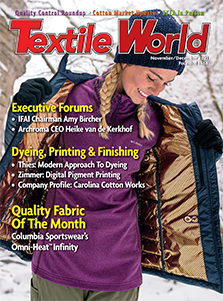After weeks of talking in generalities, President Barack Obama has unveiled his strategy for
attempting to double exports over the next five years and create 2 million jobs.
The far-reaching program calls for financial assistance to companies wishing to export,
击倒海外贸易障碍,并命令许多直接或直接的联邦机构
indirect involvement in trade to focus their efforts on how they can help achieve the president’s
goals. Obama’s proposals say little about problems with imports faced by textile and other
industries, except to say overseas countries must “play by the rules” of international trade, and
与美国(例如中国)有巨大贸易盈余的国家应该是
encouraged to place less emphasis on exporting and more on domestic consumption.
Obama calls his National Export Initiative “an ambitious effort to marshal the full resources
of the United States government behind American businesses that sell their goods and services
abroad.” He issued an executive order instructing the federal government to use “every available
resource in support of the mission,” and he created an Export Promotion Cabinet made up of the
Secretaries of State, Treasury, Agriculture, Commerce and Labor along with the U.S. Trade
Representative (USTR), the Small Business Administration, the Export Import Bank and other senior
officials. He also reactivated the President’s Export Council, which has been the principal
national advisory committee on international trade.
Calling for export promotion initiatives throughout his administration, Obama said, for
example, that Secretary of Commerce Gary Locke is issuing guidance to all senior government
officials who have foreign counterparts on how they can best promote exports, and Secretary of
State Hillary Clinton is developing a “commercial diplomacy strategy,” directing every U.S. embassy
to create a senior visitors business liaison who “will manage our export advocacy efforts overseas
and when ambassadors return home they will be expected to travel the country to discuss export
opportunities in their countries of assignment.” He said the Department of Commerce will sponsor
more than 40 trade fairs this year.
Pointing out that many businesses do not have the resources to identify new markets or set up
shop, Obama said he is planning to increase funding to set up “one-stop shops” across the
country and in 250 embassies and consulates abroad to help businesses gain a foothold in the most
promising markets for exports. He said more funds will be available from the Export-Import Bank to
向中小型公司贷款,以帮助他们进入新的出口市场。
Obama said USTR Ron Kirk has been doing an “extraordinary job” and that he will continue
working to knock down trade barriers that he said “unfairly keep American companies from markets we
belong in.” On the day after the president announced his program, Kirk met with leaders of
the U.S. apparel and footwear industries in Washington, and emphasized the importance of
eliminating trade barriers and gaining greater overseas market access. He also discussed the
政府为打击美国设计的伪造和盗版的努力。他说过
protection of intellectual property rights is “critical to our future product development.”
Both Kirk and the president called for congressional approval of free trade agreements with
Panama, Colombia and South Korea, for negotiation of a Trans-Pacific Partnership and for renewed
efforts to bring about a successful conclusion to the Doha Round of trade negotiations, all of
which they believe are key elements in the program to expand exports.
Looking at the overall global trade picture, Obama said: “I know the issue of imports and
exports, the issue of trade and globalization, have long involved passions of a lot of people in
这个国家。我知道民主党人和共和党之间存在意见差异,
differences between business and labor about the right approach. But I also know we are at a moment
我们绝对有必要超越这些辩论。”
2010年3月16日




